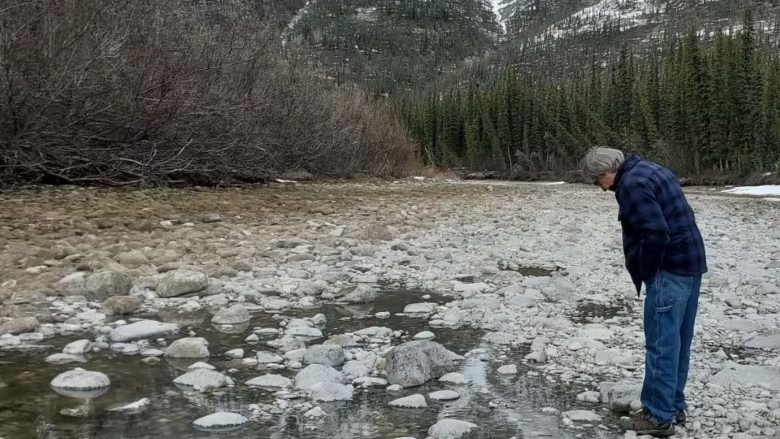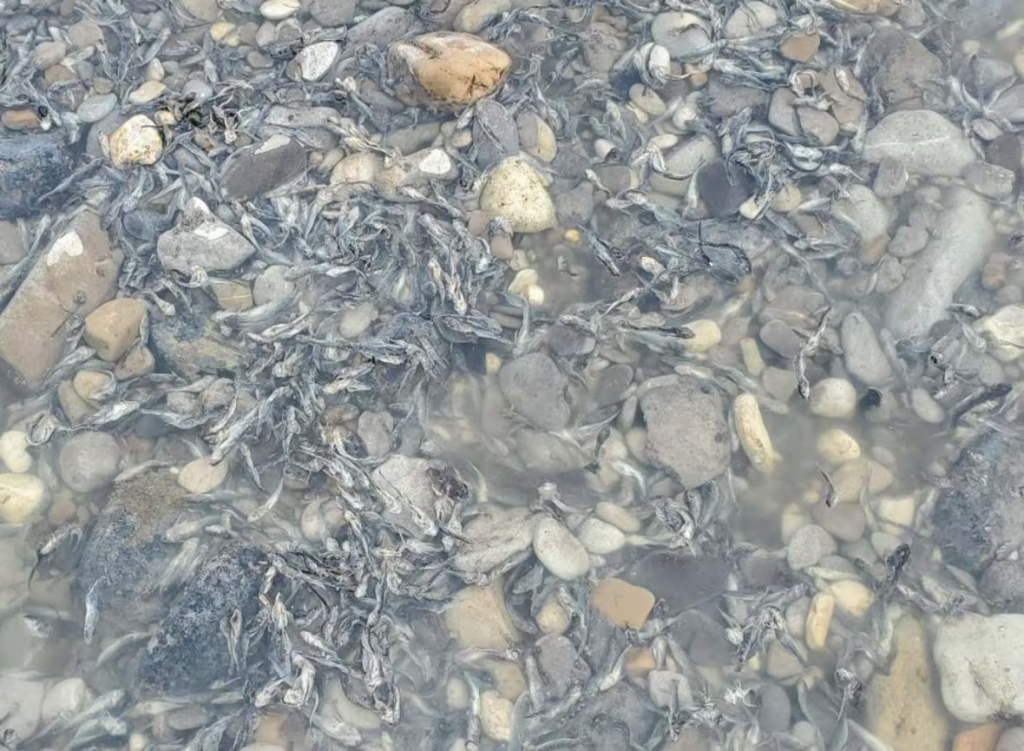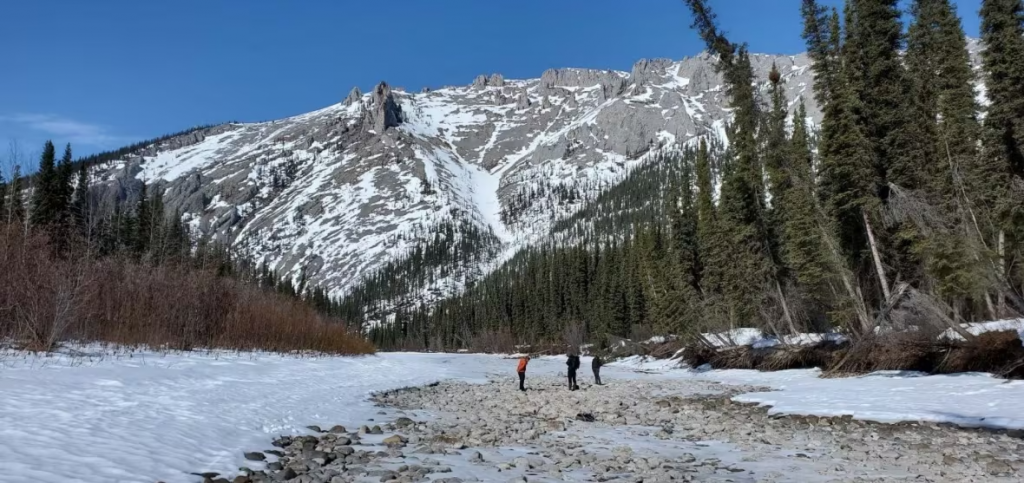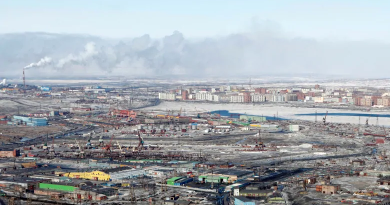Salmon are dying in dried-up river beds in northern Yukon

‘What we have been seeing … is that dewatered area was much, much, much larger than it had been in the past’
Yukon River chinook and chum salmon in the Old Crow region of the territory are being hit with the perfect storm — not only are this year’s runs expected to be dismal, but the life cycle of the salmon is being broken.
Over the last several years, lower numbers of chinook and chum salmon have made the long journey from the ocean to creeks and streams at the mouth of the Porcupine River, spawned, and then died. The small fry would then make their way back to the Bering Sea in spring.
But now many of the fertilized eggs left behind in the rivers are dying because large stretches of river are drying up in the early spring — and it’s not exactly clear why.
“In the last few years what we have been seeing, particularly this last year, is that dewatered area was much, much, much larger than it had been in the past,” said Elizabeth MacDonald, vice chair of the Yukon Salmon Sub-Committee, a non-government advisory body.
“So that is concerning, that now there is a larger section of the river where fish are dying and eggs are dying.”
The Vuntut Gwitchin government in Old Crow, which is about 800 kilometres north of Whitehorse, says a 33-kilometre stretch of the Fishing Branch River, a tributary of the Porcupine, was dewatered upstream of Bear Cave Mountain, between Old Crow and Dawson City.
Water is now gradually returning to the river bed, but it’s too late for thousands of salmon fry and unhatched eggs.
The river bottom also has sporadic small pools of water filled with stranded salmon fry, most of them dead.

Dewatering has happened before on the Fishing Branch River but now it is an annual event. The Vuntut Gwitchin government has noticed increasingly larger areas this spring that have dried up, leaving the salmon eggs and tens of thousands of salmon fry for birds and mammals to feast on.
“The conversation that is happening right now with the Yukon River Panel and the technical advisers is how and what do we do with the declining stocks, because there have to be some measures taken,” said Pauline Frost, chief of the Vuntut Gwitchin First Nation.
Frost suggests instream incubation could be considered. It’s a natural way of planting fertilized eggs into a stream bottom where there is going to be water flowing all year long.
Frost says elders in her community are against using a fish hatchery.
She says last year, there were only 349 chinook that came up the Porcupine River, and it was also a dismal run of chum salmon.
MacDonald says this pre-season forecasts also don’t look promising.
“Things are really bad for salmon right now … We could be looking at extinction within, you know, 20 years — it’s bad,” she said.

It’s not clear what’s behind the dewatered riverbeds in the Old Crow area, though Frost believes it’s linked to climate change.
The Department of Fisheries and Oceans (DFO) is also interested in figuring it out.
“We’re looking forward to working closely with our partners and [Vuntut Gwitchin] to understand potentially what are some theories that are happening there, and then utilizing our Pacific salmon strategy initiative, and the funding with that program, to help halt the decline of Pacific salmon throughout the Yukon in general,” said Marc Ross with DFO.
“Though the numbers are low, DFO is confident that collectively we can make a meaningful difference for the future of salmon and [the] Yukon River and Porcupine River.”
Related stories from around the North:
Canada: After decades of dwindling runs, sockeye salmon return to Yukon fishing village in droves, CBC News
Russia: Tighter export restrictions on electronics, but not all Russian fishing vessels are checked, The Independent Barents Observer



